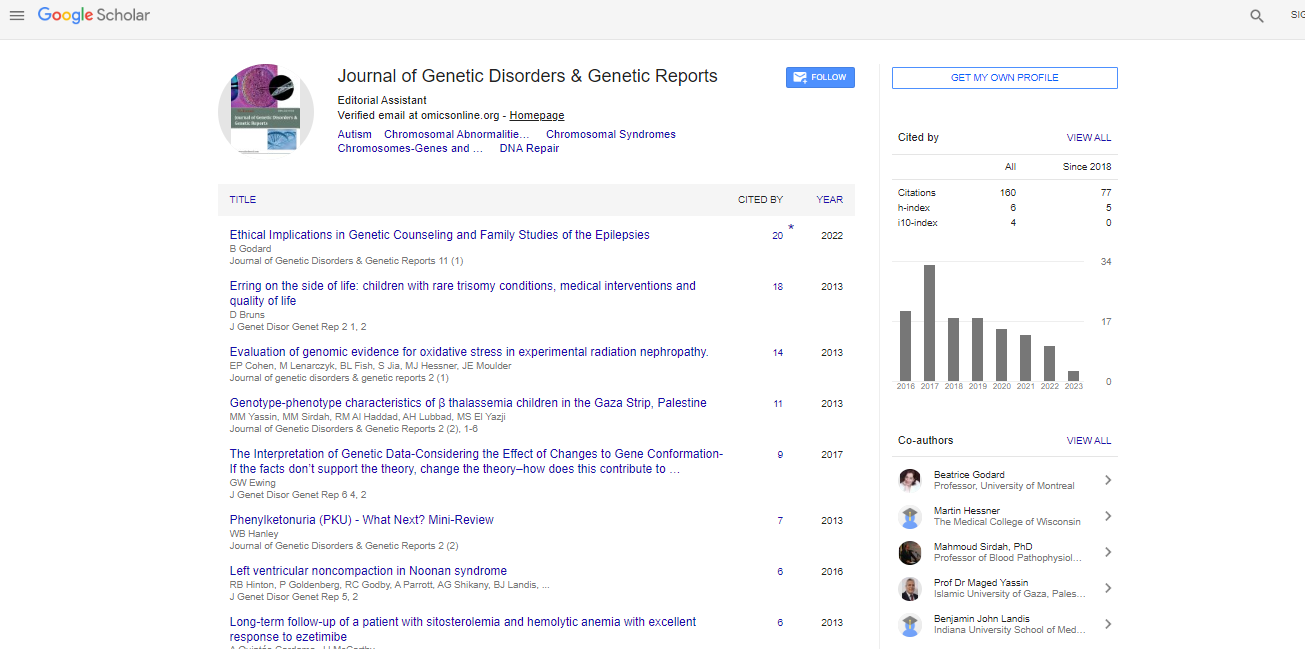Commentary, J Genet Disor Genet Rep Vol: 10 Issue: 1
The Interpretation of Genetic Data - Considering the Effect of Changes to Gene Conformation - If the Facts Do not Support the Theory, Change the Theory-How Does This Contribute to Understanding Diabetes?
Abstract
The theory that genetic change – the ‘one gene one pathology’ theory - is responsible for a particular medical condition is no longer sustainable. There is widespread recognition that the vast majority of medical conditions are multi-systemic, multi-pathological and polygenomic. This observation raises fundamental issues about the prevailing biomedical paradigm which is based upon the premise that a single biochemical marker can be an accurate determinant for a particular condition or that a single drug can be an effective treatment. The prevailing biomedical paradigm is complicated by a number of observations e.g. genetic mutations may be reversed by lifestyle changes, the brain regulates the autonomic nervous system and physiological systems, stress experienced through the senses influences brain function and the stable regulated function of the autonomic nervous system, biochemical changes are unable to explain the coherent function of networks of organs/physiological systems i.e. how these organ networks function in a coherent manner, or that many of the genes have no known or explained function. In this short paper the author reviews the issues and makes a number of observations, in particular (i) that the brain functions as a neuroregulator which uses a biophysical mechanism to regulate the body’s complex function, (ii) some genes are considered by geneticists to have no apparent function because they have not considered the possibility that these non-coding components of our DNA influence gene conformation and/or morphology (shape) and hence the subsequent expression of key proteins i.e. it is the physical and/or stereo-spatial shape of the genes and their resultant energetics which is most significant.
 Spanish
Spanish  Chinese
Chinese  Russian
Russian  German
German  French
French  Japanese
Japanese  Portuguese
Portuguese  Hindi
Hindi 



